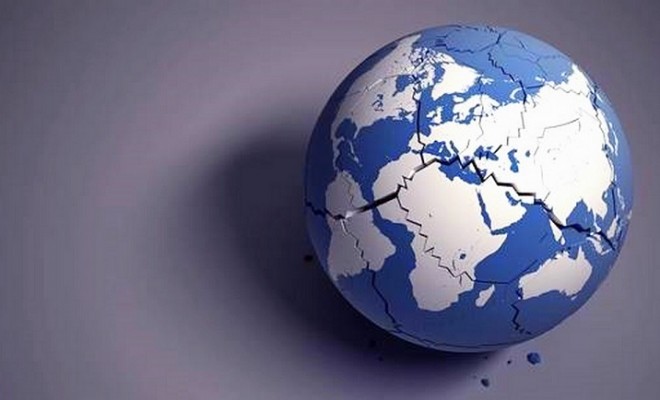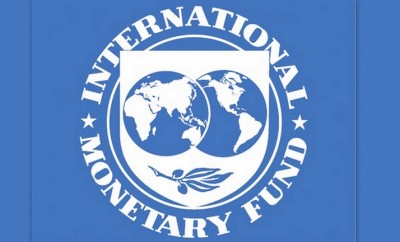
2021: A TALE OF TWO CITIES OR A TALE OF COOPERATION?
IMF Managing Director Kristalina Georgieva at the official ceremony of the Paris Peace Forum said she was keen to step up to to the challenges of 2020 and beyond with action on three fronts: pursuing high quality public investment to generate income and growth, dealing with debt early and effectively, and improving the tax system for the digital age.
“Is 2021 going to be a year in which we write yet another tale of two cities? More inequality within countries, across countries, across generations? Or will 2021 be the year in which we come together to build a more prosperous, more equitable, more sustainable world,” she said said at an event with French President Emmanuel Macron, Senegalese President Macky Sall, and European Council President Charles Michel.
“I so strongly believe that what we do today is to mobilize for that collective action,” she added.
The cost benefits of coordination: MD Georgieva also used the forum to stress that a coordinated public investment push to spur jobs and growth while addressing climate change and improving digitalization is more cost effective than going it alone.
“If the G20 countries move together, invest together at the same time rather than in a dissynchronized manner, they would spend a third less to achieve the same output goal than if they acted alone,” she said.
A lesson in cooperation: The MD hit on a similar theme in her remarks at the joint IMF-State Bank of Vietnam High-Level Conference. She lauded the “spirit of cooperation” that defines the Association of Southeast Asian Nations.
“Unless we act decisively, unless we act together, there could be long-lasting scarring from this pandemic. We also recognize that we are faced with other shocks, especially caused by a climate crisis,” she said.
LESSONS FROM THE IMF ANNUAL RESEARCH CONFERENCE
“Living in the Extreme” was the underlying theme of the 21st Jacques Polak Annual Research Conference where IMF officials, researchers and policymakers from around the world convened to discuss the economics of pandemics, climate change and tail risks.
World Bank Chief Economist Carmen Reinhart during the Mundell-Fleming Lecture made the point that debt crises don’t travel alone, alluding to additional challenges beyond the current global recession.
“When people hear that I’m really worried about financial fragility, often the next question is: are you expecting a Lehman moment?” she said, referring to the Wall Street collapse in 2008. “I say no, that’s financial fragility or banking crisis with drama. You can get a banking crisis without drama. This is the cumulative effect of an economic downturn–increased corporate and small- and medium-sized enterprise bankruptcies. And you can get this cumulative buildup in non-performing loans.”
Debt restructuring, while critical, is only part of addressing a multifaceted problem that could emerge from the crisis, she said.
Climate change: The United Nation’s Special Envoy on Climate Action and Finance Mark Carney made a case for carbon pricing. The challenge for addressing climate change will be “to keep the same quantum of fiscal stimulus once the COVID emergencies come down and shift as much from COVID and current [spending] to capital. An important element of that capital being focused on sustainable infrastructure and other aspects of that.”
In the same discussion, Professor William Nordhaus of Yale University made a case for a new architecture for climate agreements, noting that obligations and sanctions will be necessary to get countries to avoid shirking high-cost commitments.
The post-COVID world: Another headliner panel moderated by IMF Chief Economist Gita Gopinath with Yale University Professor and former World Bank Chief Economist Penny Goldberg and Paul Krugman, professor at City University of New York’s Graduate Center, featured differing views on whether the pandemic has put globalism on a path of retreat.
Krugman was optimistic that full recovery of output would take place if the virus is contained. Goldman, however, stressed that even if productivity returns to the status quo or even rises, the pandemic will have major consequences for inequality not only across income groups but also between genders and other population groups. “Group inequalities may be magnified as a result of COVID and that is eventually going to have long-term implications for growth,” she said.
Both agreed that priorities should be bringing the virus under control, putting in place economic relief, maintaining support for education, and continuing to treat climate change as an existential issue.
Replay the full lineup from the conference here.
STRENGTHENING INSTITUTIONS FOR AN INCLUSIVE RECOVERY
IMF Deputy Managing Director Antoinette Sayeh said the importance of building strong institutions and enhancing capacity will remain paramount during the recovery from the crisis. That means investing in people, a greener economy, and digital transformation.
“Strong economic institutions and technical know-how are central to designing and implementing such policies. Which is why, in addition to financial support, the IMF is providing real-time policy advice and capacity development support,” she said in remarks during the Joint Vienna Institute Virtual Annual Lecture.
“For instance, we work with countries to tackle debt problems and rebuild fiscal space by modernizing tax systems and administrations and by increasing spending efficiency. We also support their efforts to address equity concerns, for example through advice on taxation and gender responsive budgeting,” she added.
Watch the full event here.
THE CASE FOR PUBLIC INVESTMENT
The IMF’s Director of Fiscal Affairs Vitor Gaspar reiterated during the European Central Bank’s Forum on Central Banking that the premature withdrawal of fiscal support poses a greater risk than the buildup of public debt. He also pushed the case for public investment as a strategy for recovery, hitting home a message found in Chapter Two of the October 2020 Fiscal Monitor.
“In periods of elevated uncertainty we can expect the public investment multiplier to be exceptionally high,” he said, adding that the investing in high quality projects creates more space for private investment to expand.
Watch his remarks during this panel discussion. Revisit the full conference here.
ULRICH VOLZ ON INVESTING IN A GREEN RECOVERY
In our latest issue of F&D, director of the SOAS Centre for Sustainable Finance and reader in economics at SOAS University of London Ulrich Volz writes that despite long-standing and plentiful warnings from scientists about the risks of a pandemic, the world was woefully unprepared for this crisis. The same is unfortunately true for climate change.
“This pandemic strikes us at a time when—according to the Intergovernmental Panel on Climate Change—we have about a decade left to achieve a low-carbon transition and bring the world economy to a trajectory limiting global warming to 1.5°C above preindustrial levels. The next few years are our last chance to avoid catastrophic global warming. It is imperative that the various crisis response measures amount to a transformative policy response.”
Volz discusses his piece in a new IMF Podcast published this week.
Read the full 1800-word article. Prefer the PDF? Click here to download.




